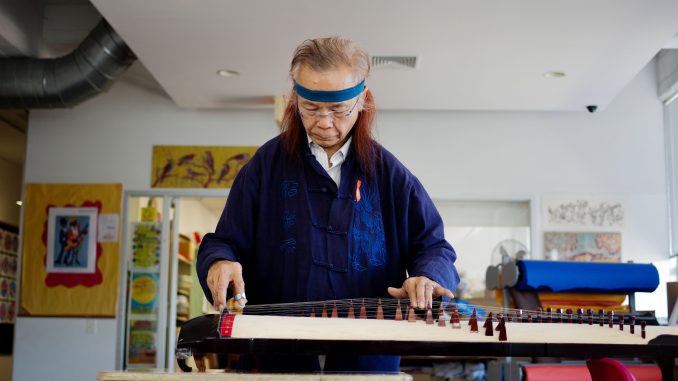
When Ngô Thanh Nhàn watched the PBS documentary “The Vietnam War” last month, he hoped the film would accurately portray life in his home country and show how Vietnamese people were affected during the war.
He was disappointed.
Ngô felt a specific detail was missing from the documentary: the harmful, lasting effects of Agent Orange. In a response published on WHYY News, he said the documentary did not make viewers fully aware of the severity of the health problems caused by the toxic herbicide used by the United States during the war.
“I had hoped to see a series that had the facts,” said Ngô, the adjunct associate director of Temple’s Center for Vietnamese Philosophy, Culture and Society. “So when the series came out, I did have a lot to say, especially since I teach here in Philadelphia. I had an obligation to write it.”
“While the documentary mentions Agent Orange in passing several times, it neglects the devastating health consequences for both Vietnamese and U.S. people…from 1975 to the present,” he wrote in the essay. “This is an issue that millions of families care about and is a crucial part of the process of reconciliation that the film extolls.”
Ngô grew up in the south Vietnamese city of Sàigòn, now known as Ho Chi Minh City. In the midst of the war, Ngô came to the U.S. to attend graduate school at San Jose State University in California in 1968. At first, Ngô supported the war, but he quickly changed his mind after seeing an educational film about Agent Orange in one of his classes.
Ngô realized there were lasting health effects caused by use of the herbicide, which contains the toxic compound dioxin, known to damage the immune system and cause cancer and infertility, according to the National Institute of Environmental Health Sciences.
“Nowadays, the U.S. government does not accept the fact that the children of many GIs can be affected by Agent Orange,” Ngô said. “I’ve seen some of them, and they look exactly like the Vietnamese who are affected.”
Ngô has been advocating for awareness of Agent Orange’s effects for years. He is a co-coordinator and founder for the Vietnam Agent Orange Relief & Responsibility Campaign, a group of veterans and Vietnamese-Americans that lobbies for governmental action on behalf of Agent Orange victims in the U.S. and Vietnam.
No direct link has been found between a person being exposed to Agent Orange and their children having a birth defect, according to a report by the National Center for Biotechnology Information.
However, after analyzing medical data from the Department of Veterans Affairs, ProPublica and The Virginian-Pilot found that veterans who said they were exposed to Agent Orange were more likely to have children with birth defects than veterans who said they weren’t sure if they were exposed.
Vietnamese citizens and soldiers have yet to receive recognition or help for their exposure to Agent Orange, Ngô wrote in his essay.
In 2015, Congresswoman Barbara Lee of California proposed the Victims of Agent Orange Relief Act to Congress, calling for medical assistance to be provided to those who have suffered negative health effects as a result of Agent Orange. It also calls for the U.S. to begin environmental restoration efforts in Vietnam. The bill has yet to pass.
Advocating for this bill is one of the main goals of Ngô’s campaign. Merle Ratner, another co-coordinator with the campaign, said she spoke to victims of Agent Orange while her organization helped draft this bill. She heard over and over again that people affected by Agent Orange were angry they could not receive government assistance.
“They get no services,” she said. “Children of American and Vietnamese-American soldiers…are quite angry about this because their birth defects and their cancers are related to Agent Orange.”
Ngô wants people to understand that his home country still suffers from the choices made during the war, he said.
“I tried to be gentle,” he said of his essay. “But it was for humanitarian reasons that I oppose the war. That’s why I wanted to address the problems that civilians had after the war. Agent Orange is a chemical that affects people for generations. They don’t warn you about that.”


Be the first to comment